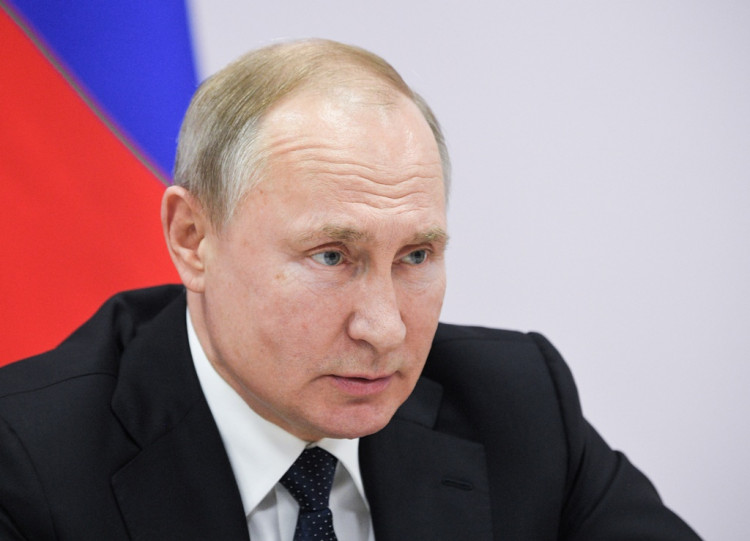The Biden administration is reportedly finalizing plans that could allow Ukraine to expand its military operations deeper into Russian territory, using U.S. and U.K.-supplied long-range weapons. This development marks a significant shift in Washington's stance and could lead to further escalation in the ongoing conflict between Ukraine and Russia. Discussions surrounding this potential policy change have intensified following recent Russian advances in Ukraine and the delivery of Iranian ballistic missiles to Moscow.
The internal White House discussions, which have been closely guarded, center on easing restrictions that currently limit Ukraine's ability to use U.S.-donated weapons for strikes within Russia. The potential policy shift comes after months of Ukraine's appeals for more robust support in its defense against Russian aggression, and as the war's dynamics increasingly pressure the Biden administration to revisit its earlier decisions.
National Security Adviser Jake Sullivan hinted at the possibility of such a change during a June interview with PBS Newshour, stating that U.S. policy is guided by "common sense" rather than geography. "If Russia is attacking or about to attack from its territory into Ukraine, it only makes sense to allow Ukraine to hit back," Sullivan said. President Joe Biden further fueled speculation by telling reporters that his administration is currently "working that out" when asked about lifting restrictions on long-range weapons.
The urgency of these discussions has escalated in recent days following confirmed reports that Iran successfully shipped ballistic missiles to Russia. This development has intensified the calls from Kyiv and its European allies for the U.S. to remove all remaining restrictions on the use of American weapons inside Russian borders. While Washington had previously allowed limited strikes inside Russia, the use of long-range Army Tactical Missile Systems (ATACMS) has remained off the table due to concerns over depleting U.S. stockpiles and the risk of provoking a broader conflict with Moscow.
Secretary of State Antony Blinken and British Foreign Minister David Lammy were in Kyiv this week to discuss these issues with Ukrainian President Volodymyr Zelenskyy. The discussions also touched on Ukraine's recent advances into Russian territory and the growing need for more aggressive military responses to counter Russia's missile attacks.
British defense leaders have been lobbying U.S. officials for weeks to permit Ukraine to use British Storm Shadow missiles, which contain American components, to strike targets inside Russia. A decision on this matter is expected to be a key topic during the upcoming meeting between President Biden and U.K. Prime Minister Keir Starmer at the White House.
However, the prospect of expanding Ukrainian strikes has drawn sharp warnings from Moscow. Kremlin spokesperson Dmitry Peskov stated that Russia would consider any U.S. decision to allow such strikes as a direct escalation of the conflict. "The involvement of the United States of America and European countries in the conflict over Ukraine is direct, and each new step increases the degree of this involvement," Peskov warned.
Vyacheslav Volodin, chairman of Russia's State Duma and a close ally of President Vladimir Putin, echoed this sentiment, suggesting that Moscow might resort to "more powerful and destructive weapons" if Ukraine begins firing long-range Western missiles at Russian targets. "Washington and other European states are becoming parties to the war in Ukraine," Volodin declared on Telegram.
The Kremlin's warnings underscore the risks of further escalation in a conflict that has already drawn in significant international involvement. Sergei Ryabkov, Russia's deputy foreign minister, expressed concerns over what he described as a "potentially dangerous escalatory scenario" and vowed that any new deliveries of long-range missiles to Ukraine would be destroyed by Russian forces. "The dangers and risks are growing," Ryabkov stated.
Despite these threats, pressure on the Biden administration from both domestic and international allies is mounting. Lawmakers from both parties in the U.S. have called for a more assertive stance in supporting Ukraine's defense efforts, with some arguing that the current restrictions hamper Kyiv's ability to adequately protect itself and retaliate against Russian aggression.
Senate Foreign Relations Committee Chair Ben Cardin hinted that a decision on this matter might already be in the works. He noted that the administration's reluctance to allow Ukrainian strikes inside Russia has softened, particularly as Zelenskyy continues to advocate for stronger support from Western allies. "The challenge is not within the administration; it's how the administration feels working with Europe [about] how far it can go," Cardin said.




